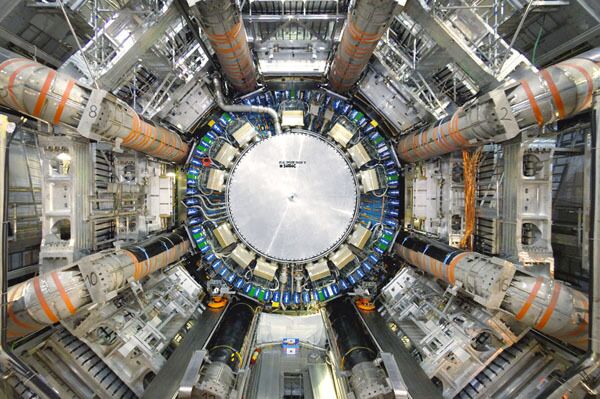MOSCOW, November 20 (RIA Novosti) - The first circulating beam of protons successfully made it through the entirety of the Large Hadron Collider (LHC) on Friday, a source at the European Organization for Nuclear Research (CERN) told RIA Novosti by telephone.
"The first beam has completed the entire circle. No problem has emerged," the source said, adding: "The beam was seen by all the detectors."
The source said CERN head Rolf Heuer has already arrived and congratulated everyone, adding that those who are not busy may take a break.
Experiments using the LHC were suspended last September shortly after a successful start, due to a malfunction of two superconducting magnets and a subsequent helium leak into the tunnel housing the device.
The collider, located 100 meters under the French-Swiss border with a circumference of 27 km, enables scientists to shoot subatomic particles round an accelerator ring at almost the speed of light, channeled by powerful fields produced by superconducting magnets.
In order to fire beams of protons round the vast underground circular device, the entire ring must be cooled by liquid helium to minus 271 degrees C, just two degrees above absolute zero.
By colliding particles in front of immensely powerful detectors, scientists hope to detect the Higgs boson, nicknamed the "God particle," which was hypothesized in the 1960s to explain how particles acquire mass. Discovering the particle could explain how matter appeared in the split-second after the Big Bang.
The international LHC project has involved more than 2,000 physicists from hundreds of universities and laboratories in 34 countries since 1984. Over 700 Russian physicists from 12 research institutes have taken part.




